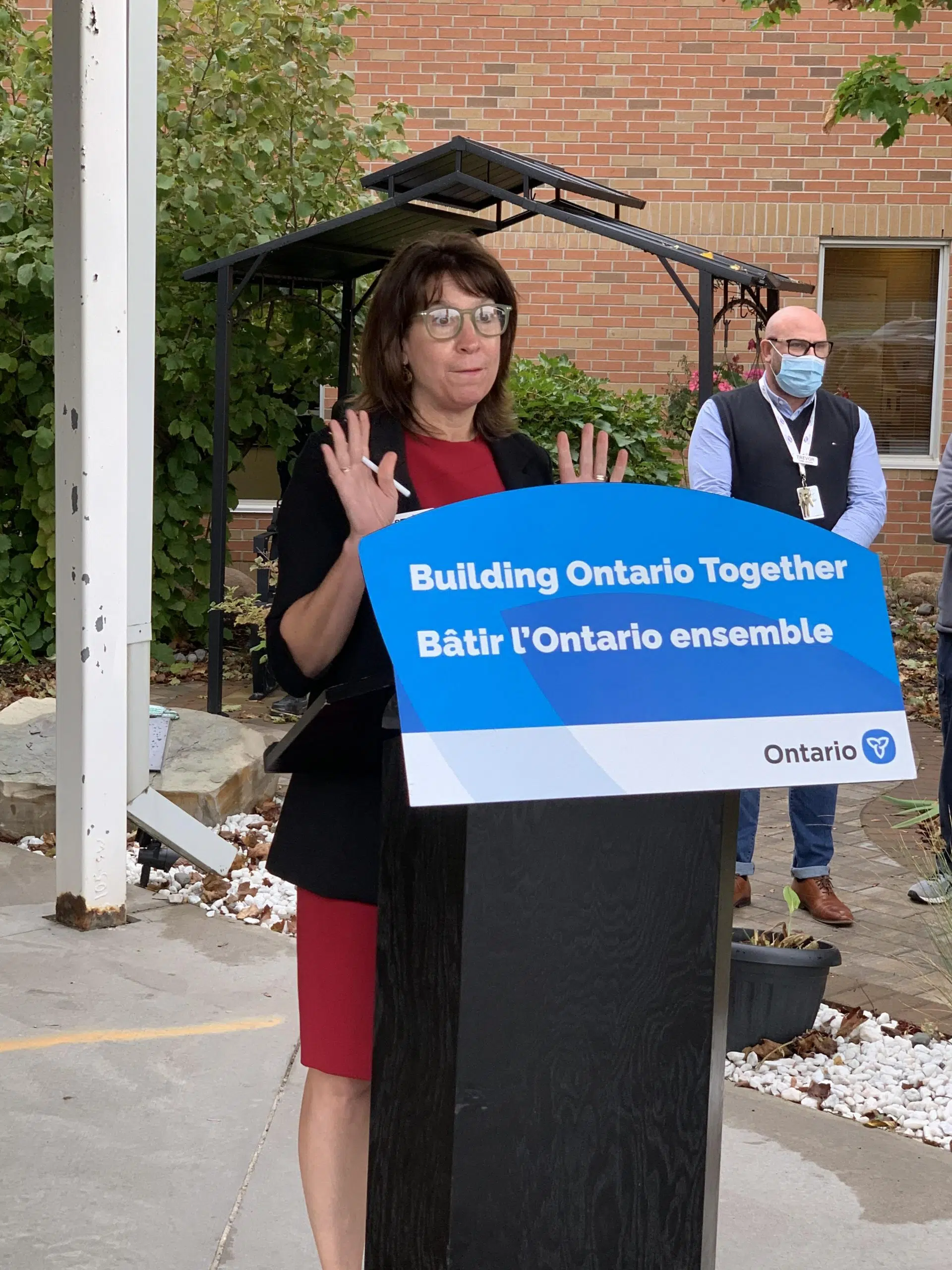Quinte Health Care CEO Stacey Daub says if there is one thing the COVID-19 pandemic has shown the public, it is that there needs to be long-term systemic changes made to the health care system.
Daub held a media briefing on Thursday afternoon and says she wanted the conversation to be about hope, but also a wake up call.
“It was our foundations that were not strong enough I think to be able to endure the situation we are in. We have a hospital system both in Ontario and across the country that has been operating over capacity for many, many years and when the hospitals are operating at occupancy levels like we’ve had, there is very little flex and resiliency.”
She says all four QHC hospitals are over capacity, but in different ways. Daub noted Prince Edward County Memorial Hospital has taken on extra beds and kept people there, along with North Hastings. She said they have spread beds across the region, keeping people longer and taking people back sooner. She also noted the COVID Unit on Quinte 5 at Belleville General Hospital has been operating for two years and says they deserve a heroes thank you as they are an incredible but tired group.
Currently, there are 20 COVID patients in hospital according to Daub. She says seven of those were admitted with COVID and the remainder are incidental, which she feels will happen more because of the transmissibility of Omicron. Of those in the Intensive Care Unit, three are from the Delta wave and one is from the more recent Omicron wave.
Daub says there have been 20 COVID deaths at QHC hospitals over the duration of the pandemic.
“And I think an important stat related to that is 19 of those 20 deaths were of individuals who were unvaccinated. Which I think is quite a powerful statistic denoting just how protective those vaccines are in terms of severity of illness.”
Daub told the media in attendance there are currently over 100 staff off work because of COVID or with COVID symptoms. She said prior to the highly transmissible Omicron, it had hovered around 40, which was challenging to begin with. Daub noted they have no plans to bring in those staff who have tested positive to help deal with staffing shortages as some hospitals are doing.
She noted because of the Modified Stage 2 framework put in place by the province, it has stopped all non-emergency surgeries and has allowed for the redeployment of the surgery team to other departments, which has made an impact and provided much needed relief and made a huge difference.
There were 1,550 people waiting for surgery when the Modified Stage 2 plan was put in place. Daub says approximately 160 surgeries are cancelled every week, but high priority surgeries like cancer surgeries are continuing.
Daub says there is a silver lining, as they are hoping the crest of this Omicron surge will be seen in the next few weeks. She said she hopes we are on the path to see case numbers come down, but hospitalizations will entirely depend on vaccination numbers.
“Now I think it’s really important to provide a huge caveat to that, right? Because with Omicron, unfortunately, it evades the vaccine’s ability to not have it transmit, it also helps with the severity of illness.”
She says they expect numbers to peak around January 14 and they have built a plan to manage based on that projection.
Of those currently in hospital with COVID, 11 are fully vaccinated. Daub also said of those in the hospital with COVID, they are all residents of the Quinte region.
When asked if the regular seasonal influenza viruses and other respiratory illnesses are being seen, Daub said the lab is seeing other types of viruses and regular winter viruses. She noted she has had friends and relatives this winter who have had colds, something she hasn’t seen the last two years, but with the return to school and return to some Ontario openings in the fall, they have seen the return of some seasonal illnesses but not to the level of previous years.
Daub wanted to reinforce she has the long game in mind when it comes to the health care system.
“To create a better and more robust hospital and community system that has more beds per capita, way more nurses per capita and get us operating in a way that helps us deliver the type of care that nurses want to deliver and were trained to deliver.”
She said the current system isn’t designed for a prolonged and sustained need and the front line staff are the ones that suffer the most, and that includes the QHC team.
Daub also noted they need to get foreign trained doctors and nurses into their positions and it is frustrating how slow that process is.
She said she’d love to see QHC, and every other hospital across the province, have a regular operating capacity of 85%, as that would enable them to support the teams and staff in a way that is so different from what has been asked of them for the last ten years.
Daub said it is up to both the federal and provincial governments to build a more robust system.






